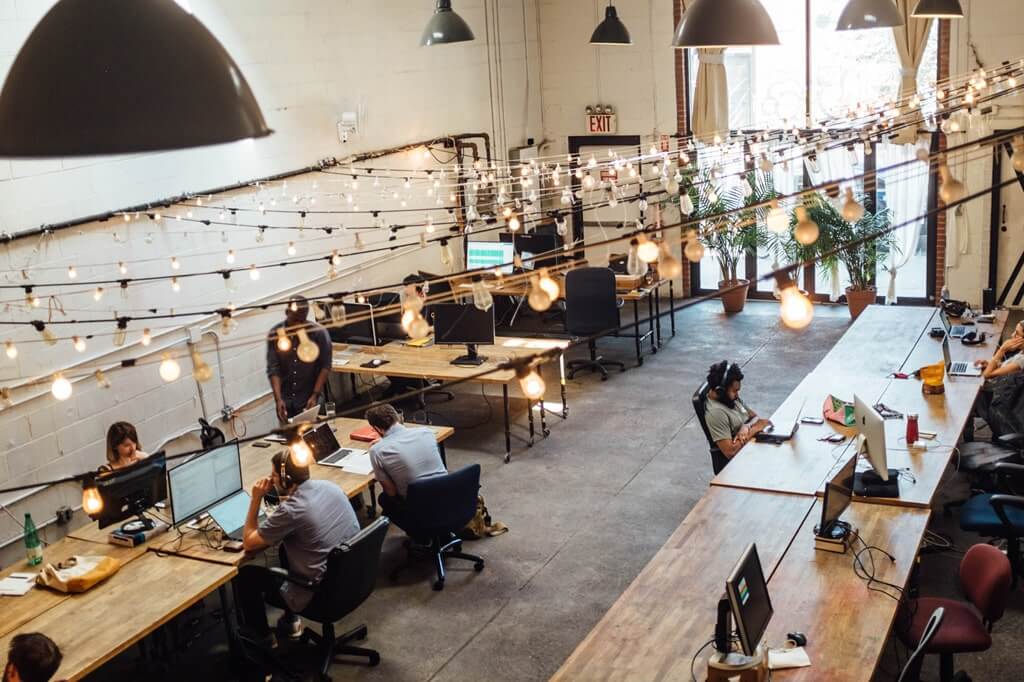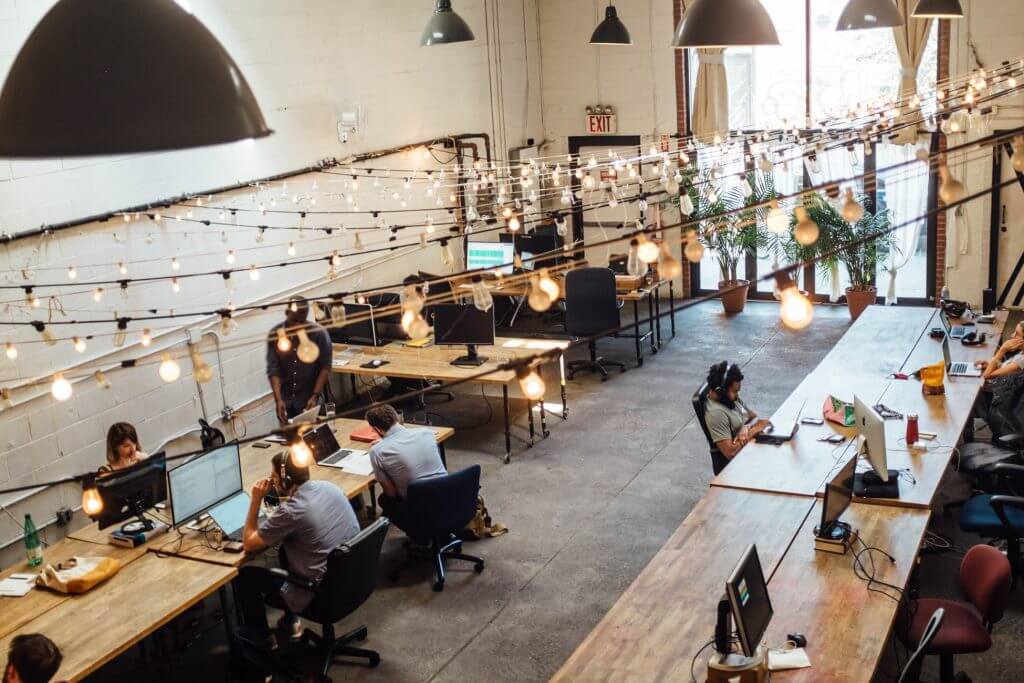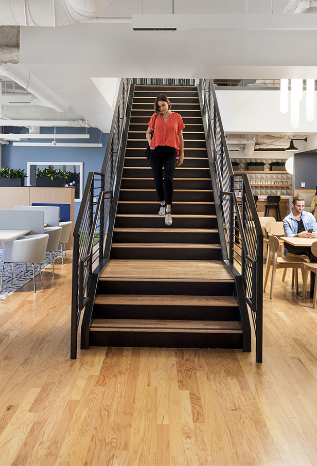The freelance population in the UK is increasingly growing. With every passing year, more and more of us are opting to go down a self-employed job route. In 2001, around 12% of the labour market in the UK (3.3 million people) worked for themselves, according to the Office for National Statistics. Jump forward to 2017 and that number had risen to over 15% (4.8 million).
So, what’s making a freelance career feel increasingly appealing? There are a few good reasons to choose self-employment over working full-time. One of the most common is the desire for more flexible working hours. Devising your own work timetable offers more freedom for starters. You can go on holiday when it suits, walk the dog when you need to and drop everything for that last minute family commitment. There’s often the added bonus of avoiding the morning commute when you work from home.
Working from home is the topic that pops up frequently in the freelance versus full-time debate. It’s that work-at-home perk that allows you to wake up a bit later if you feel like it, let the cat out whenever, and get that washing in. You can stay in your pyjamas all day if you like? Change your top for that Skype meeting though?
However rosy as it sounds, working from home has its drawbacks. With no office gossip to catch up on and colleagues to confer with, the solo enterprise can be a solitary experience. Cue the compromise. Flexible working space.
An increasing number of lonely freelancers grabbing the best of both worlds, by renting shared offices or hot-desking in the coworking office spaces popping up everywhere in locations like Soho in London. So, what are the benefits? We talked to some of the real-life freelancers working en masse.
Space to breathe
Space is a privilege, especially in big cities, and shared working can offer that at an affordable price point. Working at a sprawling desk overlooking acres of green gardens is one thing. But if you share a tiny flat and end up working from a bijou bedroom, home working can soon lose its appeal. According to US research, one in three adults live with a flatmate, meaning shared spaces can become a little cluttered for some!
Shefali, a freelance Data Scientist experienced space issues (or lack of), and now works from a coworking space. “It’s a great way to segment work and personal life and create some discipline, especially if you have young kids. I needed large computer screens and didn’t want my home to be taken over by work equipment.“
Photographer and jeweller, Otte, had an even greater challenge. “I live in a van, so space was a real issue! Now I work out of a little joint studio with four other people. I love having my own corner where I can work and make a mess. At the end of the day, I can just walk away from it all.“
Work-life separation
For many freelancers, it’s hard to find the ‘off’ switch, especially if your office also happens to be your kitchen or bedroom. Having a clear line drawn between office and home space can help create boundaries.
Cameron works as Community Manager for ‘Crème de la Crème’, a platform that helps connect freelancers from across Europe with new projects and clients. He believes one of the main benefits of coworking is the clear line it draws between work and home. “Chatting to freelancers, they tell this is one of the main benefits of choosing a coworking space. I think it helps people work more productively, then relax more easily at home.“
Jessie, a freelance Digital Marketing Strategist agrees. She says: “I have a toddler, so on my work days I get out of the house. It’s great to have a calm quiet place where I can’t be distracted by chores or cries for mummy!“ On the flipside, freelance working mums like Jessie are equally able to dedicate time to family, chores and hobbies once they’ve done a day at ‘the office’.
Proper work breaks
Everyone deserves a lunch break. But when you’re working from home day after day, it can prove hard to stop and just do nothing. As many seasoned freelancers will testify, even when you’re not actually working, you’ll end up hoovering the living room or doing some other household chore.
The freelancing Londoners nipping into their shared office at Liverpool St. are arguably much more likely to take that 15-minute stroll for fresh air. They also get to chat with someone besides the cat, share a cup of tea and take a lunch break at a nearby cafe. All of these little life enhancers are more likely to lift the daily work experience.
Bye bye loneliness
Being around other people is a good thing. Full stop. Why else would the UK have appointed the first ever Loneliness Minister? Loneliness and feelings of isolation can be an issue for freelancers who do most of their work remotely.
Although we may feel more connected, thanks to technology (Skype, IM, email, Whatsapp, etc.), the more isolated we risk becoming in real life (i.e. life that involves talking to real people, rather than screens). A recent study by US health insurer, Cigna, even suggests loneliness can be worse for your health than smoking 15 cigarettes a day.
Day to day solitude was one of the things that led photographer and jeweller, Otte, to a coworking studio. “Seeing others’ projects grow around me and having a small support network is brilliant – I’m grateful for that. It’s great to bounce ideas off the other artists. If I worked solely from my van, I’d be at serious risk of becoming lonely and disconnected.“
Networking opportunities
Cameron, Community Manager at Crème de la Crème’, points out that working at a coworking space can be another great way to network. “You get to meet interesting and like-minded people and when you’re stuck for an idea, the coworking space can provide a handy pool of people to help.“
“It can also provide you with opportunities to expand your knowledge“, he adds. “You can learn a lot from freelancers of different disciplines. For example, a developer who has to build a website would gain a lot from chatting with a designer and a copywriter during a casual coffee break.“
The opportunities for collaborations, new clients, investors and expanding your business are endless.
A base for business
For some freelancers, there will come a time when they will need to meet clients face-to-face or give out an official mailing address. If your office is your bedroom, this won’t work.
Operating out of a professional base camp can provide clients with the validation they need to want to invest in you. When you’re working out of a central London location, such as Bank, for example, you’re showing clients you’re an established professional.
Educate yourself
Many of the best coworking spaces offer freelancers much more than just a desk. Communal spaces and conference rooms are often used to facilitate free or paid for courses for the people working there. Other events might include lecture days and networking evenings.
Being part of the co-worker community gives you access to ‘extras’ like this. You may even want to offer yourself up as a potential lecturer or event organiser, providing even more opportunities to grow your client-base, connections and social network?
Stay motivated!
The quality most notable in freelancers is their ability to self-motivate. But this doesn’t mean you have to battle on alone. As we’ve outlined here, coworking can provide a multitude of benefits – social, mental and physical. But most importantly, it’s flexible. You don’t have to do it al the time. Combining it with a bit of working from home, you can get the best of both worlds (and still get to spend a few late mornings in your pyjamas). Could it be time to find your own work balance?





